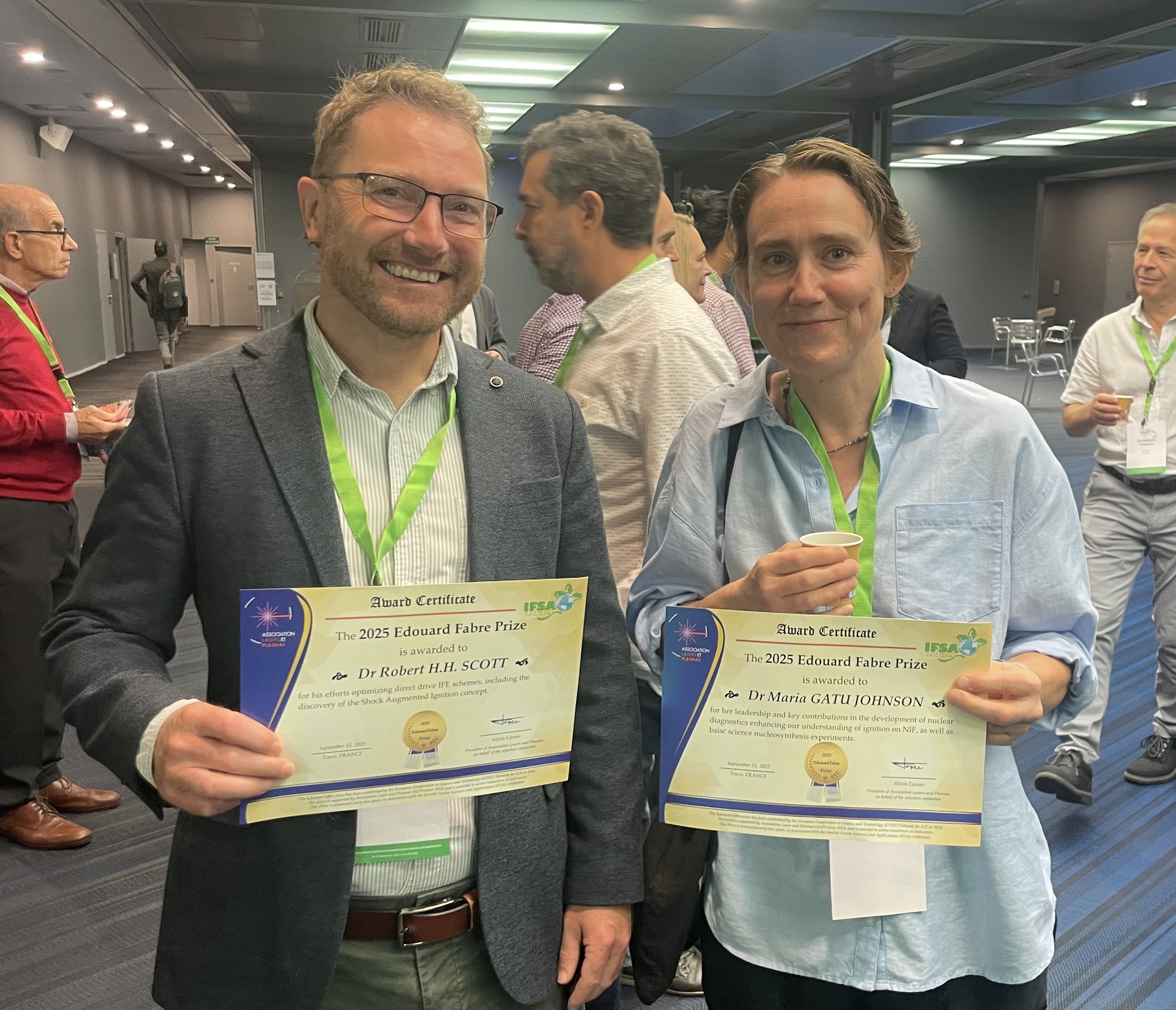Dr Robbie Scott, a fusion researcher and UPLiFT Chief Scientist from the Central Laser Facility (CLF), has been awarded the Edouard Fabre Prize "for his efforts optimising direct drive Inertial Fusion Energy schemes, including the discovery of the Shock Augmented Ignition concept."

Dr Robbie Scott (left) and the other prize winner Dr Maria Gatu Johnson (right)
Robbie was one of two people to receive the Fabre award this year – the other being Dr Maria Gatu Johnson from the Massachusetts Institute of Technology (MIT). The prize rewards active researchers at mid-career working on Inertial Confinement Fusion (ICF) related topics.
Robbie received the award during the bi-annual Inertial Fusion Sciences and Applications (IFSA) meeting in Paris, France. Designed as a gathering of the minds for the inertial fusion community, the meeting focusses upon developing Inertial Fusion Energy and recognising those who make major contributions.
Dr. Robbie Scott said:
“I feel honoured to be awarded the Edward Fabre Prize and in particular want to thank all those I've collaborated with. I hope that my efforts in optimising Laser fusion, including the Shock Augmented Ignition concept, continue to help build the way towards a potential future clean energy source."
The National Ignition Facility in the US has demonstrated getting more energy out from its inertial fusion implosions than input by the lasers, which is a huge breakthrough for fusion energy. However one of the remaining issues is that its implosions are unstable, potentially resulting in a reduced fusion energy output.
Shock Augmented Ignition (SAI) is a method that attempts to lessen this issue by using a modest intensity laser to create a strong shock. The shock heats and compresses the fusion fuel capsule at high pressure, low velocity, resulting in a more stable and uniform implosion according to simulations and initial lab experiments. Another benefit of SAI is that by reducing the laser's energy, it is potentially cheaper and more compact, while still maintaining efficiency.
This concept is has shown potential as step forward from existing implosion methods, giving hope to enhancing the prospects for Inertial Fusion Energy.
More on Robbie's work which led to his award here.
